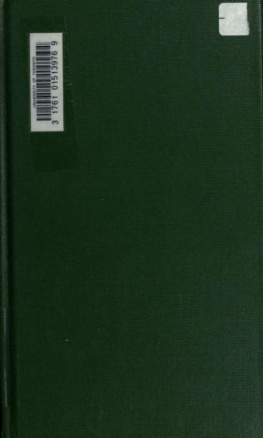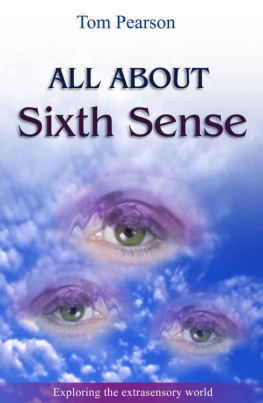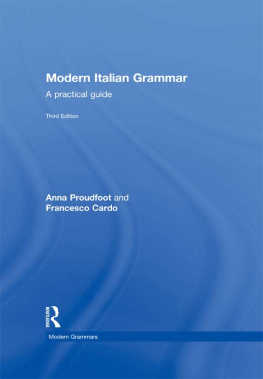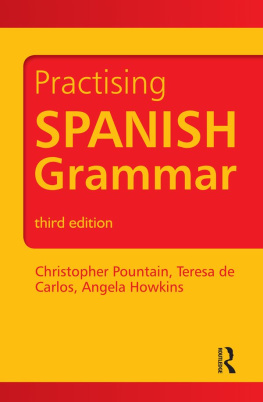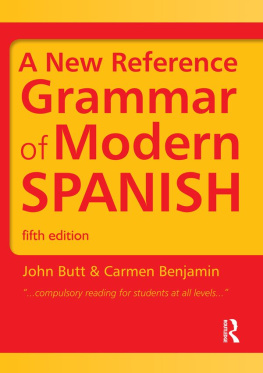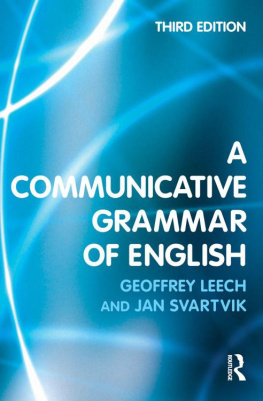Pearson - The Grammar of Science Third Edition
Here you can read online Pearson - The Grammar of Science Third Edition full text of the book (entire story) in english for free. Download pdf and epub, get meaning, cover and reviews about this ebook. genre: Science. Description of the work, (preface) as well as reviews are available. Best literature library LitArk.com created for fans of good reading and offers a wide selection of genres:
Romance novel
Science fiction
Adventure
Detective
Science
History
Home and family
Prose
Art
Politics
Computer
Non-fiction
Religion
Business
Children
Humor
Choose a favorite category and find really read worthwhile books. Enjoy immersion in the world of imagination, feel the emotions of the characters or learn something new for yourself, make an fascinating discovery.
The Grammar of Science Third Edition: summary, description and annotation
We offer to read an annotation, description, summary or preface (depends on what the author of the book "The Grammar of Science Third Edition" wrote himself). If you haven't found the necessary information about the book — write in the comments, we will try to find it.
Pearson: author's other books
Who wrote The Grammar of Science Third Edition? Find out the surname, the name of the author of the book and a list of all author's works by series.
The Grammar of Science Third Edition — read online for free the complete book (whole text) full work
Below is the text of the book, divided by pages. System saving the place of the last page read, allows you to conveniently read the book "The Grammar of Science Third Edition" online for free, without having to search again every time where you left off. Put a bookmark, and you can go to the page where you finished reading at any time.
Font size:
Interval:
Bookmark:

This book made available by the Internet Archive.


The
Grammar of Science
BY
KARL PEARSON, M.A., F.R.S.
HONORARY FELLOW OF KING'S COLLEGE, CAMBRIDGE PROFESSOR OF APPLIED MATHEMATICS AND MECHANICS, UNIVERSITY COLLEGE, LONDON
PART I.PHYSICAL
THIRD EDITION, REVISED AND ENLARGED
La critique est la vie de la science."
COUSIN.
LONDON ADAM AND CHARLES BLACK
Q. 175
nil ft.i
589840
s. e.
TO THE MEMORY OF
SIR THOMAS GRESHAM, KNIGHT
WHILOM MERCHANT OF THE CITY OF LONDON
A MAN WHOSE NOBLE PURPOSE WAS TO CREATE A GREAT UNIVERSITY FOR LONDON, BUT WHOSE FATE WAS
TO SELECT IGNOBLE INSTRUMENTS FOR THE CONTROL OF HIS SPLENDID BENEFACTION
PREFACE TO THE THIRD EDITION
THIS work has been out of print for some time, and I have long meditated as to whether it was or was not desirable to reissue it. And, if it were desirable, the problem of how it could possibly be done in a manner likely to satisfy the modern reader has raised much doubt in my mind. Reading the book again after many years, it was surprising to find how the heterodoxy of the 'eighties had become the commonplace and accepted doctrine of to-day. Nobody believes now that science explains anything; we ^H look upon it as a shorthand description, as an economy of thought. Yet in 1885, when in issuing Clifford's Common Sense of tfie Exact Sciences, I defined mass as a ratio of accelerations, and said that the current definitions of matter and force were unintelligible, it called forth the most strong protest from more than one distinguished physicist. And, again, the Grammar of Science which first saw the light in 1892 belonged to an age when the leader of British mathematical physicists was confidently asserting that there was nothing he was more sure of than the objective reality of the ether. It seems almost unnecessary now to republish a book, the lesson of which is that objective force and matter have nothing whatever to do with science, and that atom and ether are merely intellectual concepts solely useful for the purpose of describing our perceptual routine. Why! the physicists themselves are nowadays
almost prepared for each individual observer carrying about his own ether, and are even more certain than the author of the Grammar that ether and atom must account for, but need not obey, the Newtonian mechanics ! What possible purpose, then, can this Grammar serve? Were the author still young and not burdened with many other tasks, a very serviceable function could be performed by showing that the methods of the Grammar extend even further than was indicated in 1892. Beyond such discarded fundamentals as " matter" and " force " lies still another fetish amidst the inscrutable arcana of even modern science, namely, the category of cause and effect. Is this category anything but a conceptual limit to experience, and without any basis in perception beyond a statistical approximation ? The very idea will be scouted now, as Professor Tait scouted in 1885 the non-reality of force, or Lord Kelvin later the non-reality of the ether. But the real question is, what will men of science be saying twenty years hence ? They may then recognise that the distinction between the physical and the biological sciences is really only quantitative, and the physicists who now see only absolute dependence or perfect independence may then smile over the penurious narrowness of mathematical function as they smile now over the insufficiency of the old laws of motion. Or, again, may there not be some danger that the physicist of to-day may treat his electron, as he treated his old unchangeable atom, as a reality of experience, and forget that it is only a construct of his own imagination, just so far useful as it describes his experience, and certain to be replaced by a wider concept as his insight expands ? The Grammar would find full scope for its methods had its author had the leisure to rewrite it from the standpoint just indicated. All that it has been possible to do has been to add a chapter indicating what the author thinks to be the
expansion taking place in our ideas of causation. He has further, through the kindness of his colleague, Professor E. Cunningham, been able to include a chapter on Modern Physical Ideas. That chapter indicates, not that the physicists are discovering a new perceptual reality, but that they are seeking for a mathematical concept wide enough to describe a much enlarged perceptual experience. It may reasonably be doubted whether they have yet found it.
These two new sections involved dividing the book into two parts, for there is much also to be added to the chapters dealing with living forms, where progress in the last ten years has been as great as in the physical branches of science. I trust this enlarged second part of the Grammar may be out this year.
I can only hope that the third edition of my book has not been so far modified as to repel its old friends. For my part, I am compelled to regard it as scarcely renovated as fully as it ought to have been. Still, even in its present form the writers of elementary text-books on dynamics might, if they would favour it with a perusal, learn that the time-honoured three laws of motion are not all that modern science has to say about mechanism, and that even schoolboys must sooner or later rebel against being told that " a body remains at rest or moves in a straight line unless acted upon by a force " or that " mass is the quantity of matter in a body," an absolute constant independent of its motion !
KARL PEARSON.
UNIVERSITY COLLEGE, LONDON,
January 19, 1911.
PREFACE TO THE SECOND EDITION
DURING the eight years which have elapsed since this Grammar was first published, the views expounded in it have undoubtedly met with wider acceptance than the author in the least anticipated. There are many signs that a sound idealism is surely replacing, as a basis for natural philosophy, the crude materialism of the older physicists. More than one professor of metaphysics has actually discovered that he can best attack " modern " science by criticising ancient statements as to mechanism from a standpoint remarkably similar to that of the Grammar. Step by step men of science are coming to recognise that mechanism is not at the bottom of phenomena, but is only the conceptual shorthand by aid of which they can briefly describe and resume phenomena. That all science is description and not explanation, that the mystery of change in the inorganic world is just as great and just as omnipresent as in the organic world, are statements which will appear platitudes to the next generation. Formerly men had belief as to the super-sensuous, and thought they had knowledge of the sensuous. The science of the future, while agnostic as to the supersensuous, will replace knowledge by belief in the perceptual sphere, and reserve the term knowledge for the conceptual spherethe region of their own concepts and ideas of ether, atom, organic corpuscle, and vital force of physical and plasmic mechanics. That
this change of view as to the basis of science cannot take place without misunderstanding, 1 or without giving an opportunity to those who dislike science to decry its weaknesses, is only natural. To change the basis of operations during a campaign always gives a chance to the enemy, but the chance must be risked if thereby we place ourselves permanently in a position of greater strength for offence and defence. If the reader questions whether there is still war between science and dogma, I must reply that there always will be as long as knowledge is opposed to ignorance. To know requires exertion, and it is intellectually easiest to shirk effort altogether by accepting phrases which cloak the unknown in the undefinable.
Font size:
Interval:
Bookmark:
Similar books «The Grammar of Science Third Edition»
Look at similar books to The Grammar of Science Third Edition. We have selected literature similar in name and meaning in the hope of providing readers with more options to find new, interesting, not yet read works.
Discussion, reviews of the book The Grammar of Science Third Edition and just readers' own opinions. Leave your comments, write what you think about the work, its meaning or the main characters. Specify what exactly you liked and what you didn't like, and why you think so.

